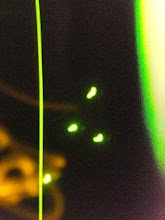
Well, we all knew that they believed it, but now it's come official: the Recording Industry Association of America is now denying the right of music users to copy their own personal recordings onto their own computer.
From the Washington Post:
Now, in an unusual case in which an Arizona recipient of an RIAA letter has fought back in court rather than write a check to avoid hefty legal fees, the industry is taking its argument against music sharing one step further: In legal documents in its federal case against Jeffrey Howell, a Scottsdale, Ariz., man who kept a collection of about 2,000 music recordings on his personal computer, the industry maintains that it is illegal for someone who has legally purchased a CD to transfer that music into his computer.
The industry's lawyer in the case, Ira Schwartz, argues in a brief filed earlier this month that the MP3 files Howell made on his computer from legally bought CDs are "unauthorized copies" of copyrighted recordings.
The RIAA is a trade group. They cannot dictate copyright law. Merely stating that legitimate personal use is illegitimate does not make it so. That's the good news.
The bad news is that the more they repeat their mantra, the more they will begin to believe it (heck, those middle-aged office-lodged cats probably believed it from the beginning - remember when they tried to block the sale of the first MP3 players?). The effect on future lawsuits?
Just remember: A little sister with a Big Brother complex isn't dangerous until Mom and Dad start to believe it.
The scariest quote from the article:
At the Thomas trial in Minnesota, Sony BMG's chief of litigation, Jennifer Pariser, testified that "when an individual makes a copy of a song for himself, I suppose we can say he stole a song." Copying a song you bought is "a nice way of saying 'steals just one copy,' " she said.














